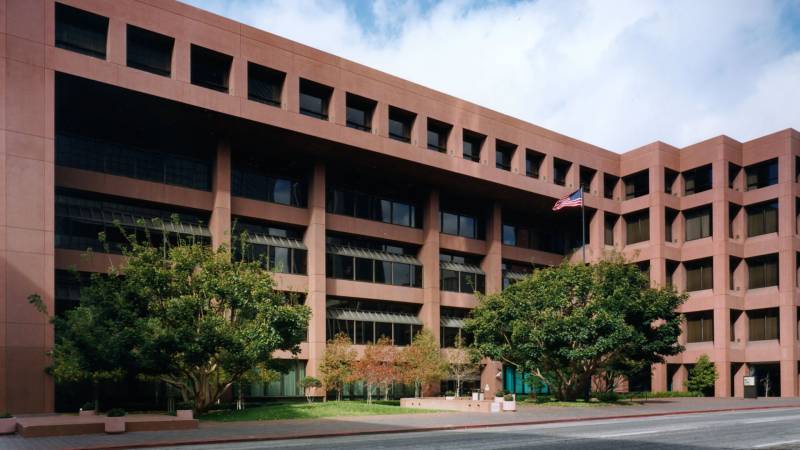Updated Monday, April 6, 2:30 pm
Lawyers for defendants in federal court in San Diego — including hundreds of migrants charged with illegally crossing the U.S.-Mexico border — said their clients are at imminent risk from coronavirus in jail, and they’ve issued an urgent call for defendants to be released on bail.
“Jails are uniquely dangerous settings for COVID-19,” wrote Kathryn Nester, executive director of the Federal Defenders of San Diego, in a letter this week to Sen. Kamala Harris. “A COVID-19 crisis in our jails will greatly exacerbate the pandemic in our communities,” the letter said.
Nester told Harris that the U.S. Attorney’s Office in San Diego has consistently denied requests by defense attorneys to agree to bail for people charged with non-violent offenses, in spite of the risk of COVID-19 transmission in the region’s three federal detention facilities.
She asked the senator to pressure the U.S. Justice Department to release inmates awaiting trial and to take legislative action to speed up “the immediate release of as many inmates as possible.”
The call comes as coronavirus begins to surge through jails and prisons around the country, including 167 cases in Chicago’s Cook County Jail as of Thursday, and more than 239 at Riker’s Island in New York City by Friday.
California prison officials announced plans this week to release almost 3,500 inmates early to combat the spread of coronavirus.
And sheriffs in the Bay Area and beyond have also begun releasing some low-level inmates. San Francisco has reduced its jail population by 25% in recent weeks, according to SF District Attorney Chesa Boudin.
Meanwhile, advocates for detained immigrants have filed lawsuits around the country demanding U.S. Immigration and Customs Enforcement (ICE) release medically vulnerable people from ICE detention.
On Thursday, a federal judge ordered six people released from the Adelanto ICE Processing Center in San Bernardino County.
Harris is “exploring options,” to answer the defense attorneys’ plea for help, according to her aides.
“The allegations raised are deeply concerning,” Harris said in a statement.
“Prosecutors must make responsible charging decisions that eliminate unnecessary or excessive incarceration, especially during the coronavirus crisis,” she added, stating that the Justice Department must address the matter “urgently and re-evaluate how it is enforcing and detaining individuals.”
In San Diego, in response to the Federal Defenders’ charge that his office is ignoring the risk of COVID-19, San Diego’s U.S. Attorney Robert Brewer said federal prosecutors are taking an active role to protect health and safety.
Brewer said they are meeting regularly with stakeholders, including defense attorneys, court officials and the jails, to respond to the coronavirus crisis, and are working directly with the Federal Defenders to release scores of inmates willing to plead guilty and accept a sentence of “time served.”

